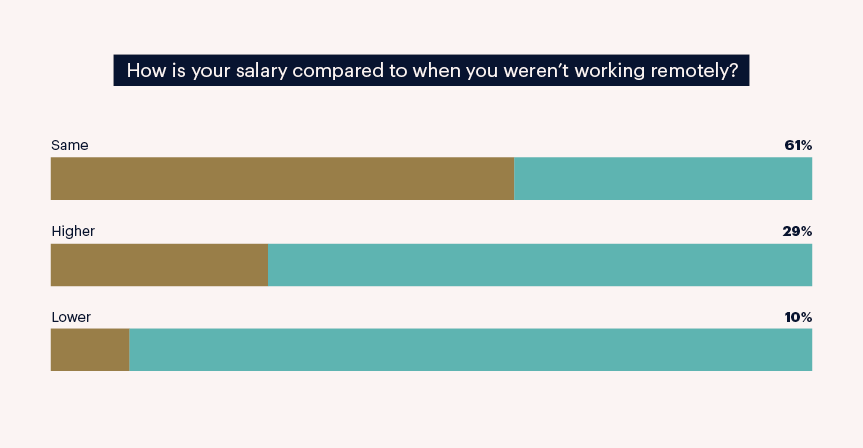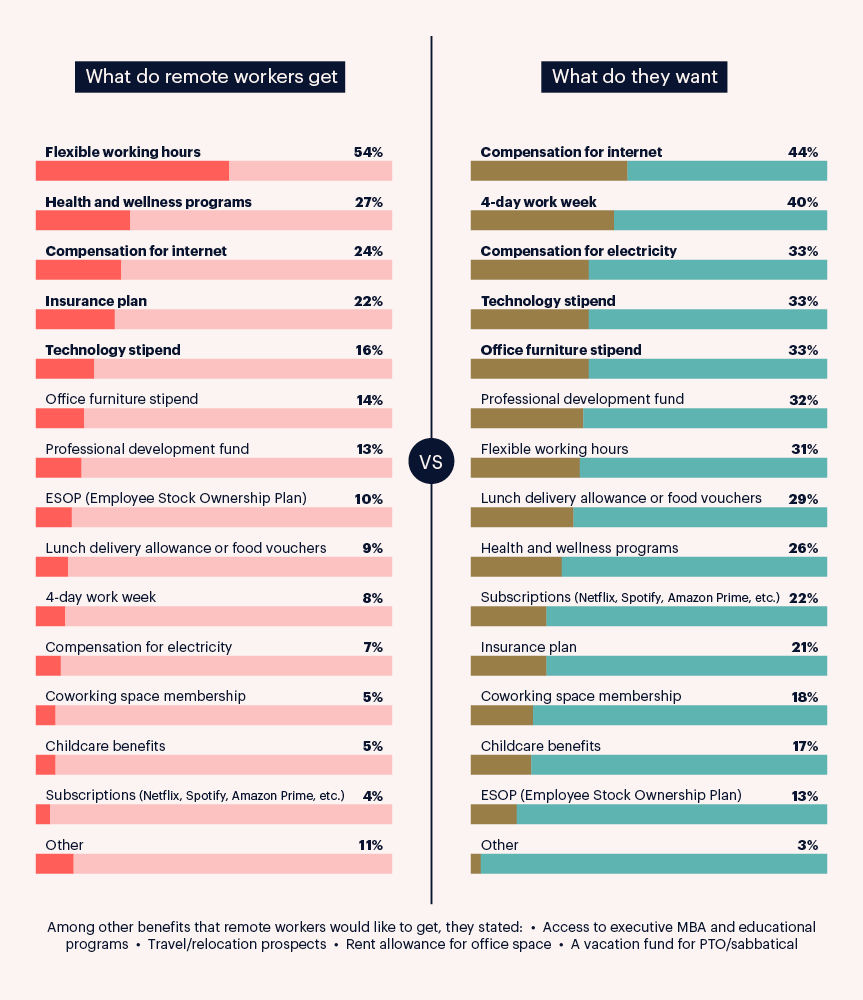Kickresume's latest survey shows a discrepancy between what remote employees want and what they receive. A four-day work week and remote work expenses top the list of unmet needs.
Kickresume, a leading AI career hub and resume builder, just released an in-depth report titled "Beyond Remote Work," providing valuable insights into current remote work trends. Among other things, they also took a closer look at the discrepancies between the benefits remote workers desire and what they actually receive.
A snapshot of salaries: Remote vs on-site
It comes as no surprise that compensation, including salaries and benefits, is key to attracting and retaining top remote talent. A notable 61% of remote workers are earning the same salary as they did before transitioning to remote work, with another 29% reporting higher earnings. Only 10% of workers stated that their salary has grown lower since they started working remotely.

While this is a positive trend, the company’s research uncovers a considerable gap when it comes to other benefits.
A look at what remote workers really want
Just over half of remote employees (54%) reported working flexible hours, 27% receive health programs, 24% are compensated for their internet connection costs, and 22% have insurance plans. However, remote workers identified different priorities, signaling a disconnect between what companies offer and what their employees value most.
Interestingly, the top five benefits employers currently offer only include two of the top five benefits remote workers desire.
In order to truly attract top talent, Kickresume’s study indicates companies should consider offering compensation for:
- Internet connection costs (44%),
- electricity (33%),
- technology stipends (33%),
- and office furniture stipends (32%).
In contrast, the data shows only a fraction of remote workers currently receive these benefits:

“Remote employees are voicing their needs loudly and clearly, they want benefits tied directly to their work-at-home expenses," said Peter Duris, CEO of Kickresume. “Our research shows that employers need to reassess their benefit offerings, focusing more on their employees’ needs as they transition to remote work."
A desire for a 4-day workweek
Remarkably, a substantial 40% of respondents expressed a desire for a four-day workweek, a benefit only currently enjoyed by 8% of remote workers.
"Our findings shed light on the rising popularity of the 4-day work week among remote workers. This underlines the importance of flexibility and work-life balance in remote work settings," said Peter Duris, CEO of Kickresume.
Closing the gap to attract top talent
The report highlights that with the majority of remote workers earning the same salary as their in-office counterparts, employers can save on overhead costs associated with in-office work.
However, to leverage these benefits, companies must align their benefits packages with the desires of remote workers.
“It's clear that, apart from the 4-day work week, all of the benefits that remote workers desire are benefits that employees get in the office to do their job,” added Duris. “Employers should strive to create an equal working environment for all employees and recognize the value that remote workers bring to the organization. Investing in necessary tools for their workstations, including high-speed internet and ergonomic furniture, can be a really simple and efficient way of demonstrating a commitment to their remote workforce.”
For a deeper look into the report’s findings, download the full Beyond Remote Work report at www.kickresume.com/remote-work-survey-report/ or contact us.
About Kickresume
Kickresume is a popular AI career hub that offers a wide range of AI tools and resources for both job seekers and employers. With over 2,500,000 users worldwide, Kickresume is committed to helping people land their dream jobs by providing innovative and user-friendly solutions and also sharing their expertise on job search strategies.



